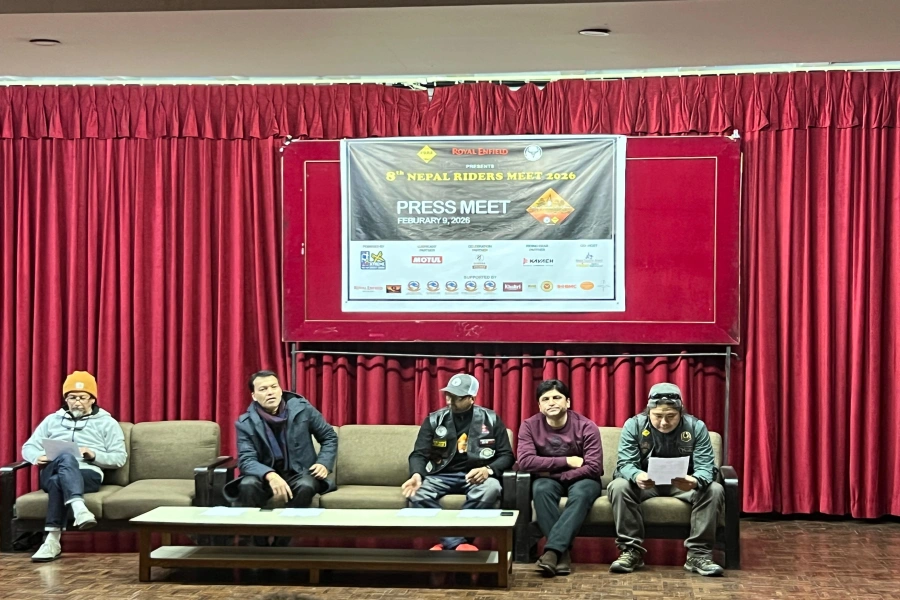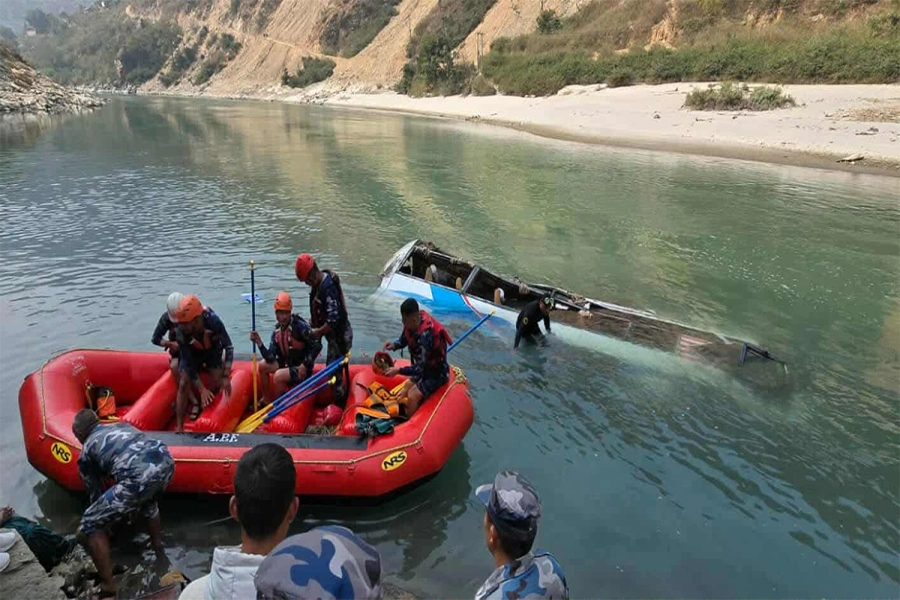NEPALGANJ, Oct 29: Bheri Zonal Hospital of Nepalgunj has been discharging sewage and septic tank contents into the city's open dumps, resulting in strong and unbearable stench in the surrounding areas, according to the locals.
This has not just polluted the area, making it difficult for people to live there, but has also risked their health. Even the passersby, who are mostly commuters, students and security personnel, have to cover their nostrils when they pass through this area due to the stinking odor, according to locals of Jailroad-13.
“Our ward has sent a petition to the sub-metropolitan city office regarding this matter. We have also informed the management committee of Bheri Zonal Hospital several times but they haven't taken any action so far,” said Rajendra Shahi, a local.
The sub-metropolitan city office of Nepalganj had initiated a campaign to make its city an open defecation free zone by March 15, 2016. Many of the wards had supported the campaign by making their area free from open defecation, except for ward number 13.
“We were informed by the sub-metropolitan city office to declare our ward an open defecation free zone, but with the zonal hospital discarding the wastes into the open drains, how can we make such a claim?” Shahi further said.
Expressing utter disappointment, Santosh Chand, another local, said that stakeholders have largely ignored the problem. “People have to cover their noses while passing through this area. Even though the sewage from the hospital has polluted the main area of the market, nobody is doing anything,” he lamented.
However, Dr Shyam Sunder Yadav , superintendent of Bheri Zonal Hospital, denied the allegation and said the hospital has been using proper septic tanks for its sewage. “We have cleaned our septic tanks recently and we have been using it to discharge our sewage. Water from our bathrooms might have been discharged into the drains,” he said.
The situation at Bheri Zonal Hospital is critical, as both the patients and their caregivers are at risk of contracting more diseases from the polluted area. Moreover, the patients' wards in mid-western and far-western Nepal are rarely cleaned, which deprives them of a hygienic place for treatment.
Bheri Zonal Hospital to be upgraded to specialized hospital of...






































